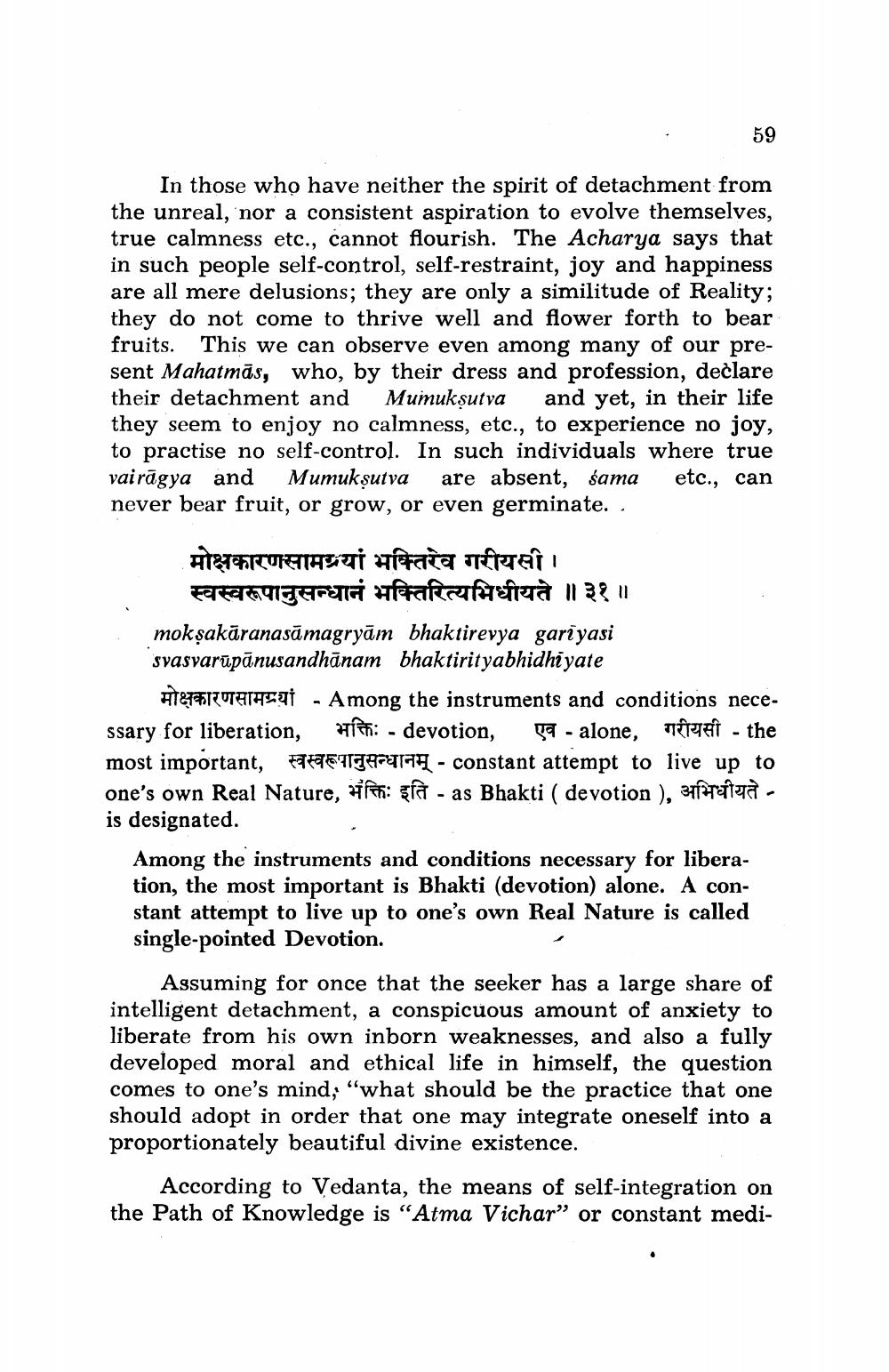________________
In those who have neither the spirit of detachment from the unreal, nor a consistent aspiration to evolve themselves, true calmness etc., cannot flourish. The Acharya says that in such people self-control, self-restraint, joy and happiness are all mere delusions; they are only a similitude of Reality; they do not come to thrive well and flower forth to bear fruits. This we can observe even among many of our present Mahatmās, who, by their dress and profession, declare their detachment and Mumuksutva and yet, in their life they seem to enjoy no calmness, etc., to experience no joy, to practise no self-control. In such individuals where true vairagya and Mumuksutva are absent, sama etc., can never bear fruit, or grow, or even germinate..
. मोक्षकारणसामग्रयां भक्तिरेव गरीयसी । zaramugeratri ftaftenftretterà || 32 ||
mokṣakaranasāmagryām bhaktirevya gariyasi svasvarūpānusandhānam bhaktirityabhidhiyate
59
मोक्षकारणसामग्रयां - Among the instruments and conditions nece भक्ति: - devotion, एव alone, गरीयसी - the
ssary for liberation,
most important, - constant attempt to live up to one's own Real Nature, : - as Bhakti ( devotion), arta - is designated.
-
Among the instruments and conditions necessary for liberation, the most important is Bhakti (devotion) alone. A constant attempt to live up to one's own Real Nature is called single-pointed Devotion.
Assuming for once that the seeker has a large share of intelligent detachment, a conspicuous amount of anxiety to liberate from his own inborn weaknesses, and also a fully developed moral and ethical life in himself, the question comes to one's mind, "what should be the practice that one should adopt in order that one may integrate oneself into a proportionately beautiful divine existence.
According to Vedanta, the means of self-integration on the Path of Knowledge is "Atma Vichar" or constant medi




